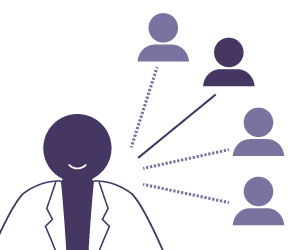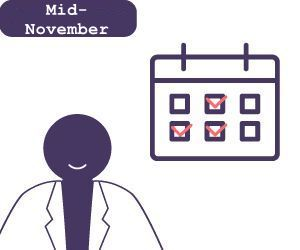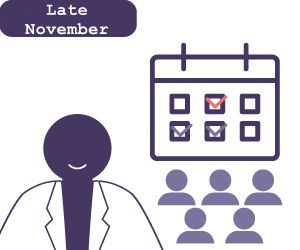kakenhi About KAKENHI
Specially Promoted Research, Scientific Research (S), and Transformative Research Areas(A)・(B)
External Research Funding Support Program (KAKENHI)
A. Research Category Step-Up Support Program
B. Retry Support Program
C. Large-budget Research Category Support Program by KAKENHI Advisors
- The “URA Accompaniment-Based Application Support Program (Large-budget Research Category)” has been renamed to the “Advisor Matching Support Program.”
- The “Step-Up Support Program for Applications in the Penultimate Year” has been discontinued starting from FY2025.
List of projects (research expenses) supported by external funds in FY2017 [Outline]
| A | B | C | |||||||||||||||||
|---|---|---|---|---|---|---|---|---|---|---|---|---|---|---|---|---|---|---|---|
| Research Category Step-Up Support Program | Retry Support Program | Large-budget Research Category Support Program by KAKENHI Advisors |
|||||||||||||||||
| Page in the Application Guidelines | p. 1 | p. 3 | p. 5 | ||||||||||||||||
| Purpose |
|
Support for applying for large-budget research projects | |||||||||||||||||
| Eligible applicant | A principal investigator whose project concludes in FY2024 (Reiwa 6), who applied for a higher research category in FY2025 (Reiwa 7) and was not selected (despite being subject to a hearing or receiving an A rating), and who intends to reapply in FY2026 (Reiwa 8).
|
An individual who has previously been awarded a Grant-in-Aid for Scientific Research (S) or (A), who applied again for the same category but was not selected (despite being subject to a hearing or receiving an A rating), and intends to reapply in FY2026 (Reiwa 8). *Additional conditions may apply.
|
A full-time faculty member of this university (including specially appointed positions) who intends to apply for one of the following large-budget research categories. *The final decision will be made based on factors such as past application and award history for KAKENHI.
|
||||||||||||||||
| Support Details | Research Expense Support
|
Research Expense Support
|
Support Provided by Matched Advisor
|
||||||||||||||||
- The amount of support research expenses in the table is a guideline amount, and will be determined based on the budget for the fiscal year 2025 and the number of recipients.
A. Research Category Step-Up Support Program
1.Purpose
For researchers who applied for higher-tier KAKENHI categories but were not selected, and meet the specified criteria, this program provides research funding to mitigate the risk of research interruption or stagnation due to loss of funding. It also promotes continued challenges to higher-level categories of KAKENHI and contributes to increasing the university’s total external funding.
2.Eligible Applicants
Applicants must meet all of the following three criteria:
① The applicant must be the Principal Investigator of a research project listed under the “Research Categories Concluding in FY2024 (Reiwa 6)” and must have applied as Principal Investigator in the FY2025 (Reiwa 7) KAKENHI call for a research category listed under the “Eligible Research Categories for Support.” However, applications under the “Generative Research Fields” category are not eligible.
| Research Categories Concluding in FY2024 (Reiwa 6) | Eligible Research Categories for Support | Note |
|---|---|---|
| Scientific research (A) | Scientific research (S) | If the applicant is selected for a Grant-in-Aid for Scientific Research (A) as a Principal Investigator through multiple applications, they will not be eligible for this support. |
| Scientific research (B) | Scientific research (A) | If the applicant is selected for a Grant-in-Aid for Scientific Research (S) as a Principal Investigator through multiple applications, they will not be eligible for this support. |
| Scientific research (C)/Early-Career | Scientific research (B) |
②The result of the application in the FY2025 (Reiwa 7) call must correspond to one of the categories listed in the following table.
| Eligible Research Categories for Support | The result of the application |
|---|---|
| Scientific research (S) | Was subject to a hearing review but was not selected |
| Scientific research (A) | Although the application was not selected for funding, it received an A rating or an equivalent evaluation. (In research fields where approximate ranking is not provided, this refers to cases where the average raw score for evaluation elements is 3 or higher.) |
| Scientific research (B) |
③The applicant must continue their research challenge by applying again as a Principal Investigator from Hokkaido university in the FY2026 (Reiwa 8) KAKENHI call, under the same research category as in the FY2025 (Reiwa 7) call.
B.Retry Support Program
1.Purpose
This program is intended to support Principal Investigators who applied for KAKENHI but were not selected, and who meet the specified eligibility requirements, in cases where research funding is genuinely needed. The purpose is to help them continue their research activities and facilitate early success in future KAKENHI applications, thereby contributing to an increase in the number of KAKENHI grants awarded at Hokkaido university.
2.Eligible Applicants
Applicants must meet all of the following eight conditions:
① The applicant must be a professor, associate professor, lecturer, or assistant professor (including specially appointed faculty) affiliated with Hokkaido university.
② The applicant must have served as a Principal Investigator for a Scientific Research (S) or (A) during the past three years (FY2022 to FY2024).
③ The applicant must have applied from this university as a Principal Investigator for a Scientific Research (S) or (A) (hereinafter referred to as an “eligible research category”) in the FY2025 (Reiwa 7) KAKENHI call, and must not have been selected for funding.
④ The applicant must have received an approximate evaluation ranking of “A” for the eligible research category in the FY2025 (Reiwa 7) KAKENHI call, and in the case of Scientific Research (S), the proposal must have been selected for a hearing review but ultimately not selected for funding.
⑤ The applicant must not have any ongoing KAKENHI project as a Principal Investigator in FY2025 (Reiwa 7). Applicants who are awaiting the screening results of a proposed project as Principal Investigator may still apply for this support program.
⑥ The applicant must not have received support under the “Research Category Step-Up Support Program” in FY2025 (Reiwa 7).
⑦ The applicant must have at least one research achievement—such as a conference presentation, journal publication, or academic book—during the period from FY2023 (Reiwa 5) to FY2025 (Reiwa 7).
⑧ In the FY2026 (Reiwa 8) KAKENHI call, the applicant must apply as a Principal Investigator from Hokkaido university for one of the research categories listed in the table below.
| Research category applied for in the FY2025 (Reiwa 7) KAKENHI call but not selected for funding | Research category to be applied for in the FY2026 (Reiwa 8) KAKENHI call |
|---|---|
| Scientific Research (S) | Scientific Research (A) |
| Scientific Research (S) (including concurrent application for Scientific Research (A)) | Scientific Research (A) (including concurrent application for Scientific Research (S)) |
C.Large-budget Research Category Support Program by KAKENHI Advisors
1.Purpose
This program aims to support applicants planning to apply as Principal Investigators for large-budget KAKENHI categories by matching them with research advisors. The support includes research planning meetings, reviews of application documents, and mock interview preparation, with the goal of increasing the number of applications and successful grants at Hokkaido university.
2.Eligible Applicants
Eligible applicants are professors, associate professors, lecturers, or assistant professors (including specially appointed faculty) affiliated with this university who plan to apply as Principal Investigators or Area Leaders for one of the following large-budget KAKENHI categories: International Leading Research, Specially Promoted Research, Transformative Research Areas (A/B), or Grant-in-Aid for Scientific Research (S). In selecting the recipients of support, past KAKENHI application and award history will be taken into consideration.
3.Support Contents
Researchers with experience in receiving large-budget KAKENHI grants or serving as reviewers will be matched as KAKENHI advisors. Applicants can choose from the following support options according to their needs.
(1)Research Planning Meetings
Applicants preparing to apply for a large-budget KAKENHI category may receive support for holding research planning meetings with their advisor, including opportunities for discussion and feedback on their research plan.



(2)Application Document Review Support
You can receive a review of your application documents by an advisor
(3)Mock Interview Support
If your proposal is selected for an interview, you can receive mock interview support with an advisor acting as a reviewer.


If you pass the document review, please inform us of the date and time of the actual interview, as well as your availability for the mock interview. We will coordinate the schedule with the faculty member acting as the reviewer.

The URA will ask a faculty member with experience in securing major external funding (KAKENHI Advisor) to serve as a mock reviewer.
The research proposal, presentation slides, and video will be shared with the mock reviewer.



 Application Guidelines for FY2025
Application Guidelines for FY2025